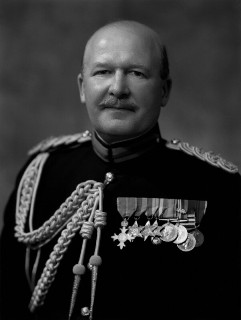View entry
Name: STONELEY, Crew Hadlett OBE (Brigadier)

Birth Date: 9 May 1911 Leeds
Death Date: 27 Aug 2002 Tarrant Monkton, Dorset
First Date: 1936
Last Date: 1940
Profession: Army Officer - Royal Signals, seconded to the KAR as OC Signals Section, Northern Brigade. Officer Commanding, Signal Company, Military Dept, KAR in 1939, appointed 1939. Originally Coy. Officer, KAR 1936
Area: Nairobi
Married: In Rome 1944 Sheelah Moncreiffe Birchenough b. 30 July 1916 St Asaph, d. 2000 north Dorset
Book Reference: EAWL, Staff 39, Rhino Link 11
War Service: 1940 G2 CSO EA Comd. 40-42 Cairo, 43 Italy, 44-45 Italy/Palestine
School: Blundell's School, Woolwich
General Information:
In 1940, Crew became GSO 2 Signals in Headquarters East Africa Command, moving with the Force Tactical headquarters into Somaliland and Abyssinia, managing to act as Best Man at Michael Biggs' wedding before the campaign. For the part he played in the campaign against the Italians he was mentioned in dispatches.
Crew was posted to GHQ MELF in Cairo and, after attending the Staff College at Haifa both as a student and then a member of the Directing Staff, joined 1St Division Signals and took part in the landing at Anzio. After a period at Allied Force HQ in Algiers he became Commanding Officer of 1StDivision Signals and took part in the crossing of the River Arno. He remained with the Division during the advance to the Gothic Line. In 1945 he moved with the Division to Palestine. Amongst his post-war appointments were attendance at the Joint services Command and Staff College and spells in the Military Mission to Greece and in GHQ in Egypt. In 1951 Crew became Chief Signal Officer Headquarters London District and thus held this post during the Coronation, with responsibility for ensuring that the gun salutes commenced at the exact moment of crowning, which he achieved by giving the order to fire by radio from Westminster Abbey. He then took up an intelligence appointment in Egypt, which covered the Suez operation before he moved on to Cyprus where he remained during the EOKA troubles.
In 1958 Crew was appointed to be the Organising Secretary of the World Modern Pentathlon which was taking place in the United Kingdom. His contacts from his Olympic days stood him in good stead during this appointment, which lasted for six months and which he described as the most demanding of his entire career. Promoted Brigadier in 1959, Crew became Deputy Signal Officer-in-Chief and then commanded Singapore Area until retiring in 1964. He became a Colonel Commandant, Royal Signals.
